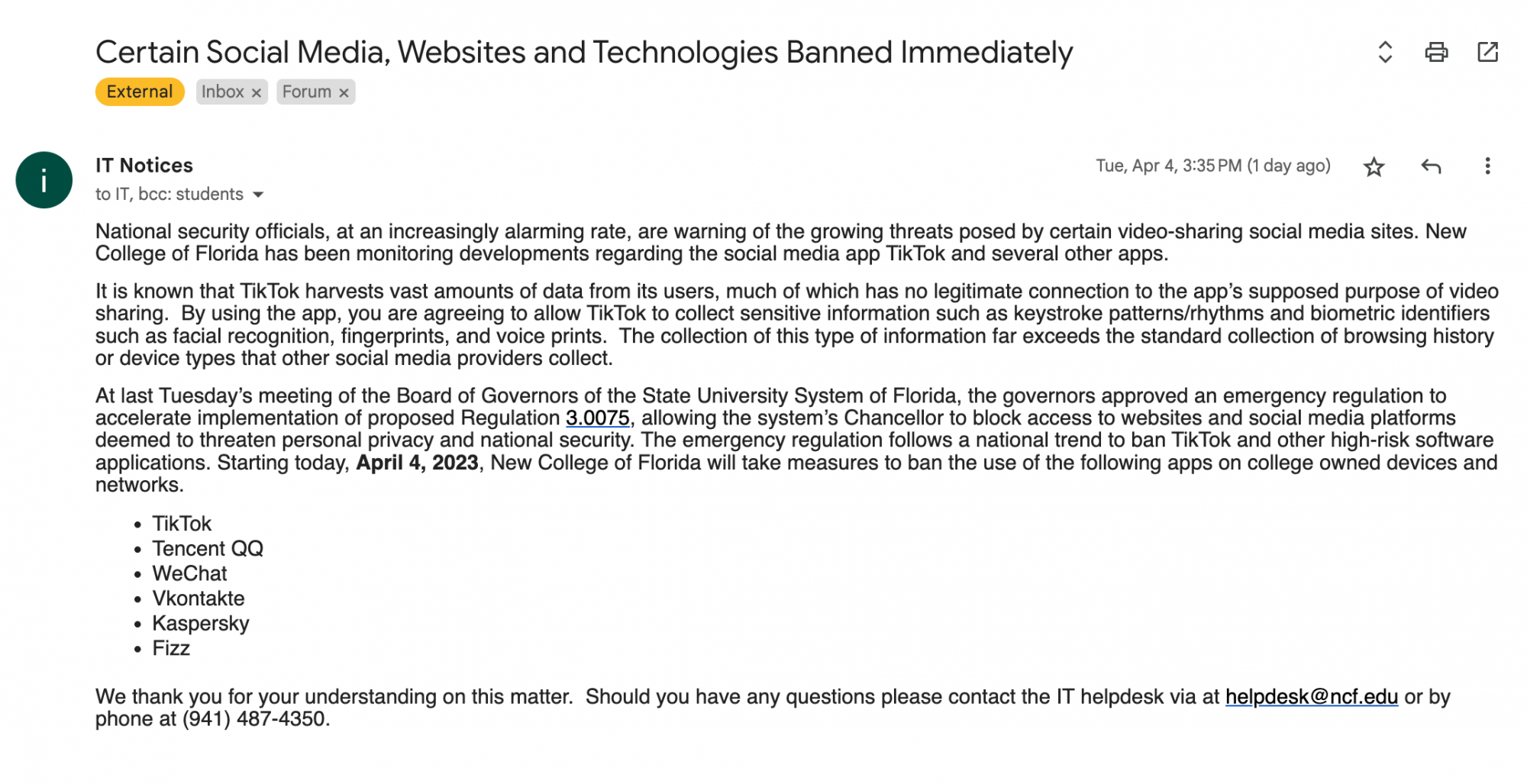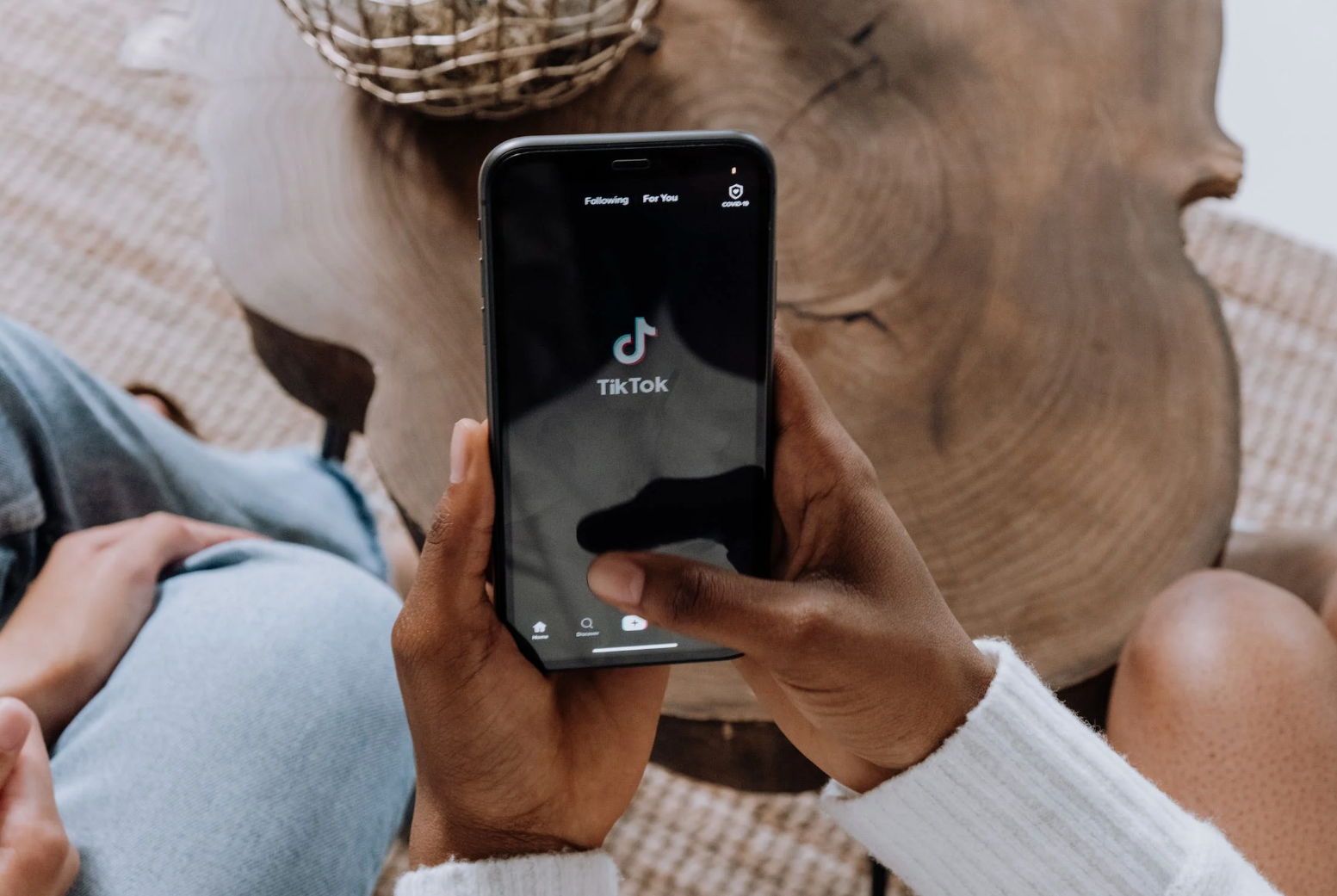On Apr. 4, the New College of Florida joined other state universities in banning TikTok, WeChat and other “dangerous” apps from devices and networks owned by the campus. Students are no longer capable of accessing TikTok on their own private devices through campus WiFi. The ban list also includes Russian cybersecurity giant Kaspersky, Russian social media platform VKontakte, Chinese IM platform Tencent QQ and college-based social app Fizz.
The origins of this decision date back to January, when Missouri Senator Josh Hawley (R) first proposed banning social media phenomenon TikTok from American phones, comparing it to fentanyl and stoking fears that the app is used to collect the data of American citizens for the benefit of the Chinese state. On Mar. 29, Hawley tried to pass this piece of legislation by unanimous consent, but was blocked by Kentucky Senator Rand Paul (R). The hearings against TikTok have seen widespread bipartisan support within the Senate, but have been viewed far less positively by those outside of Congress. Can the government force a total ban of TikTok? Or is the mobile app here to stay?

TikTok’s popularity is hard to overstate—it has been downloaded over 200 million times in the United States alone, with over 80 million users by 2021. For comparison, the entire United States population in 2021 was just north of 330 million, so approximately one quarter of the entire American population has TikTok.
Hawley is a far-right conservative, aligned with the Trump administration. He is notorious for leading the effort to overthrow the results of the 2020 election, as well as his outspoken support for an independent Hong Kong. He has occasionally found himself aligned with the left-most members of Congress, and collaborated with Bernie Sanders to increase federal spending for COVID-19 stimulus. His time in the Senate, however, has often been characterized as punitive, and driven primarily by an instinct to punish the Biden administration and not to adhere to any particular policy goal.
TikTok has, like other social media platforms before it, been linked to pushing content that includes violent radicalism, an encouragement of toxic masculinity and “incel” thought, suicidal ideation and sexually explicit content marketed to children. That isn’t the primary issue that many of these lawmakers have with the app, though. They’re concerned about TikTok’s impact on national security. Many lawmakers since the Trump administration have been expressing significant concerns that TikTok’s aggressive data collection, while not abnormal for social media companies, could hypothetically be used by China to aggregate information on American citizens.
TikTok’s parent company ByteDance is headquartered in Beijing, and all Chinese companies are legally required to hand over data on their users if it is considered a matter of national security. There is, however, no evidence to suggest that the Chinese government has ever actually requested that data. To add on, TikTok keeps its American data on American and Singaporean servers. Now, though, American lawmakers on both sides of the aisle are out for blood from the social media giant. Demands are being made to either force ByteDance to divest or to ban the app entirely on American devices, and it’s already been banned on federal and some state devices for fear of a security risk. Now, whether or not there’s any real risk of TikTok being used to siphon data from its users for the use of the Chinese government, the writing seems to be on the wall—TikTok is on its way out.

